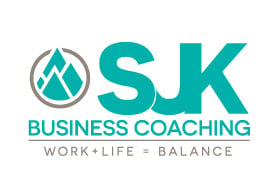As I conveyed in my last posting, millennials are looking for “socially conscious” companies. You can’t fake this nor can you assume exactly what this means to them. You’ll need to be open to change and learn from the millennials themselves. This transition in your company’s culture will not be an overnight process, but the long-term benefits will be worth it in terms of a more productive work force.
While there are certainly exceptions to everything we’re discussing, Jen Silver, president of Roofing Utah, Inc. (roofingutah.com), truly believes that despite what many people think, most millennials do want to work, they just don’t know how to work. She’s not exactly sure why, but she has found that millennials were never taught things that most older people coming into the workplace already know. Therefore, you need to take on somewhat of a parenting role and treat them like kids. According to Jen, “You must be patient enough to teach them, without judgement. ‘This is how you should dress; this is why you need to be on time.’ You need to lay things out in terms of expectations, what is and isn’t appropriate behavior, etc. You need patience and can never make assumptions based on what you yourself know or do.” And if you have a larger company, the role of just one “work parent” will not be sufficient, so you’ll need to develop a mentoring program to involve other key managers.
Jen assumes absolutely nothing. She and her management team have the patience to explain everything they know is critical in terms of expectations and appropriate behaviors. And since everyone is different, they get to know each person individually and often custom-tailor instructions/directions. For example, for one person who is always late, he is now told to show up thirty minutes early just to ensure that he’s on time. In other cases, she’s seen people with spare time who immediately get back on their phones. Because she understands that they need to feel connected, she’ll teach them that there are positive things they can do with this down time such as calling customers for referrals or to post positive reviews of their company. Again, millennials need very clear direction.
Because Jen has learned that her millennials need an outlet, especially after a frustrating experience, or just to relax at the end of a hard day of work, she has outfitted her office with weightlifting equipment, punching bags, a foosball table, air hockey, and an X Box. She jokes that often, her employees are having such a good time, she needs to “kick them out” of the office at the end of the day.
When she sees one of her people looking down, maybe after a failed sales call or a roofing job that just didn’t go right, she’ll suggest they just take a breather. As Jen noted, “They’re kids and when I tell them to go play for a while, it works!”
Regarding the use of alcohol and drugs, especially with the legalization of marijuana, Jen has told her team that any legal activities they participate in on their own time is their personal business, but it’s not tolerated on the job. Further, as her employees sometimes do, if they begin to tell her about any of their outside-of-work activities of this nature, she’ll cut them off. She reminds them that she doesn’t want to discuss this in the workplace; it’s inappropriate.
Before judging a millennial’s behavior as lazy or disrespectful, you need to take the time to remember that if they weren’t taught the right thing, you can’t expect them to do the right thing. Jen recalled the time that she allowed one of her employees to use her personal car. After he returned, she was taken aback when she saw he had left his fast-food trash on the floor. After collecting her thoughts and realizing that it wasn’t something he did consciously or maliciously, she took him aside and explained why she was disappointed that he didn’t respect her personal property. She explained that she wasn’t upset with him but he should have returned the car the way he found it. He seemed to understand and months later, when he used her car again, it came back pristine.
I asked Jen if her experiences with millennials varies by education and she told me that she’s seen similar behaviors, whether they’re high school or college graduates. Interestingly, her college graduates are working in jobs totally unrelated to their education. For example, her production manager has a degree in economics. She believes that so many millennials just attended college because they were told that’s what you do, never fully focusing on the process beyond that.
Yes, hiring millennials will entail work on your part, but as Jen has found, your investment will be worth it in the long run.
In my final post on this subject, Jen will share a test that she has found invaluable in her recruitment process. Stay tuned.
Stephen


Recent Comments